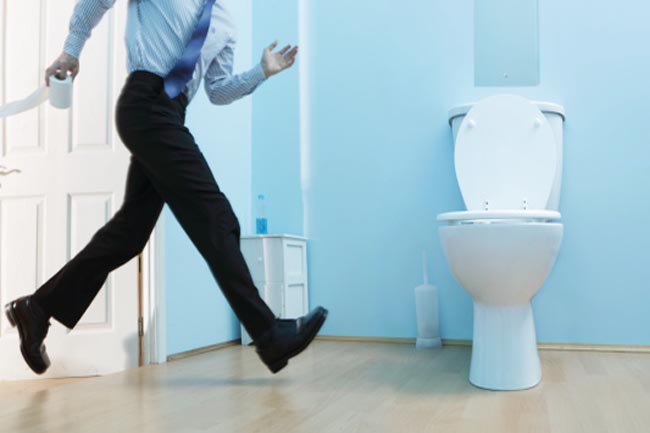Many men suffer from urinary control problems, often as a result of diabetes or prostate surgery. Incontinence can limit activities, keep men homebound, and subject them to costly, messy pads. This is in addition to dealing with the frustration and embarrassment, and the constant fear of leaking and odor. The reality is, men don’t have to live with bladder control problems anymore. Dr. Roy Bankhead is a fellowship trained urologist in Oklahoma City, OK who specializes in treating men suffering mild, moderate and severe incontinence.

What is Incontinence?
It’s a taboo subject – no one wants to talk about urinary control. Likewise, incontinence is generally a taboo subject. The fact is, the myths of incontinence often obstruct people from getting the help they need to live an active lifestyle. Knowing the truth about incontinence can help relieve any embarrassment of the condition. Over 2 million men suffer from urinary incontinence. You are not alone.
Bladder (or urinary) incontinence is the unintentional loss of urine. It is a serious problem that men are reluctant to discuss with others. When the muscle (sphincter) that holds the bladder neck closed is not strong enough to retain urine in the bladder, the result is urinary incontinence.
Incontinence occurs when:
1. The sphincter is too weak
2. The bladder muscles contract strongly
3. Bladder not emptied regularly
4. Enlargement prostate
5. Benign Prostatic Hyperplasia
6. Prostate removal due to cancer
What are the types of incontinence?
Stress Incontinence: The accidental release of urine when pressure is applied to the bladder, such as when you cough, sneeze, laugh or lift something heavy. This is the most common type of incontinence post-prostate cancer.
Urge Incontinence: When the bladder contracts at the wrong time giving you the feeling that you have to urinate immediately, even if you may have just emptied your bladder.
Overflow Incontinence: Characterized by leaking when the bladder does not empty properly. This can be due to other medical conditions such as an enlarged prostate or a narrowing of the urethra.
Total Incontinence: Continual leakage of urine due to complete sphincter deficiency.
Signs of Incontinence:
Do you leak urine when you:
- Cough?
- Sneeze?
- Laugh?
- Bend?
- Lift?
- Change positions (i.e., sitting or lying to standing)?
- Sleep?
If you answered yes to any of these questions or if you think incontinence is preventing you from enjoying life, talk to your doctor. He can diagnose your type of incontinence and help you find the most effective treatment option.
Non-surgical treatment options include:
- Absorbent products
- Catheters;
- Internal
- External
- Incontinence or penile clamps
- Behavior modification
- Kegel exercises
- Limiting liquids
- Timed urination
- Medication
- Changing existing medications
- New medication
Next Steps…
You don’t have to live with urinary control issues. Give us a call or send us an email to find a solution that fits your lifestyle.
